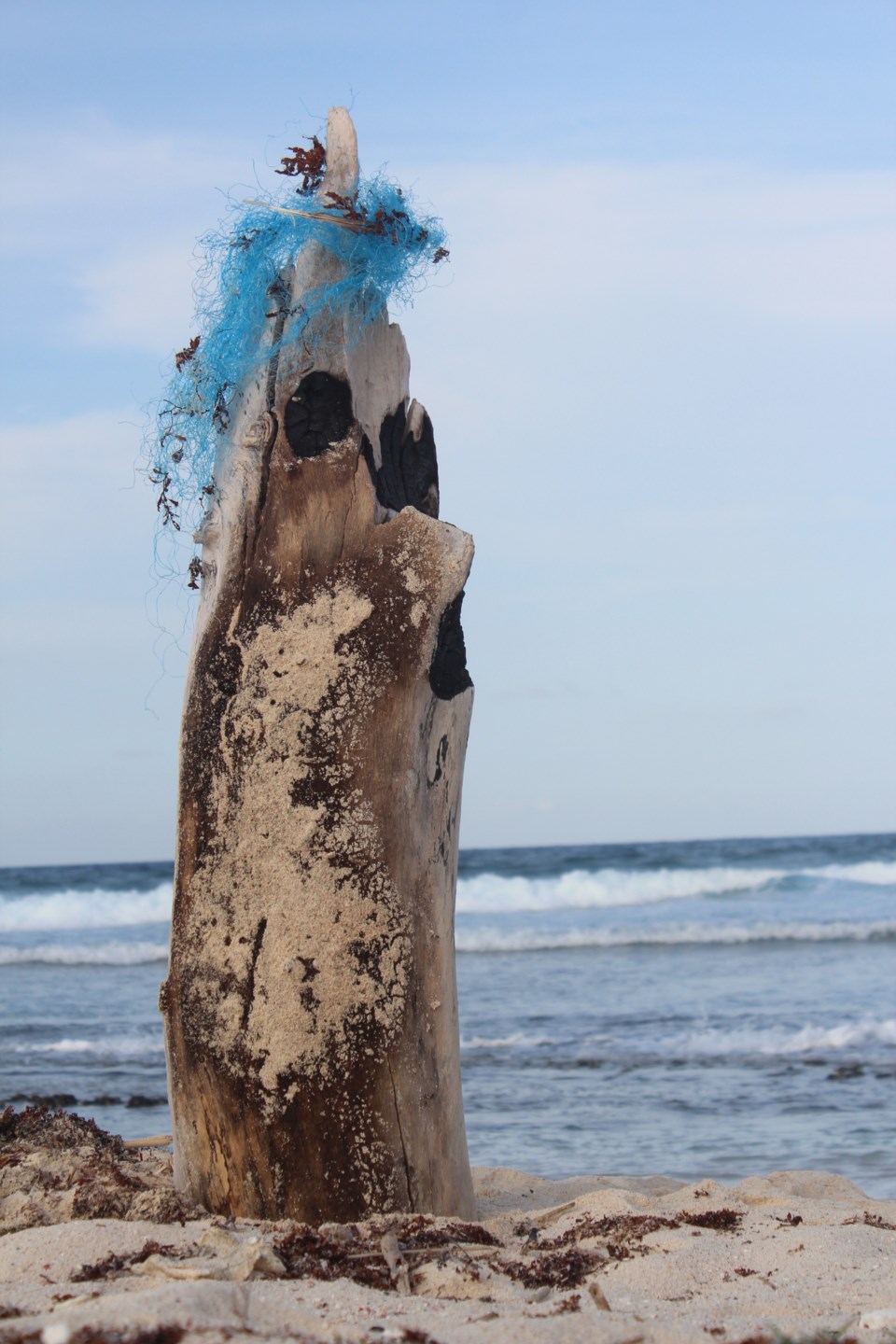 The approach of Earth Day on Monday comes with a couple of alarming news stories ringing in our ears. One is that an international panel of scientists has declared that in order to keep the rise in the atmosphere’s overall temperature to less than 1.5 Celsius degrees – regarded as a “tipping point” towards catastrophe – there has to be “rapid, far-reaching and unprecedented changes in all aspects of society.”
The approach of Earth Day on Monday comes with a couple of alarming news stories ringing in our ears. One is that an international panel of scientists has declared that in order to keep the rise in the atmosphere’s overall temperature to less than 1.5 Celsius degrees – regarded as a “tipping point” towards catastrophe – there has to be “rapid, far-reaching and unprecedented changes in all aspects of society.”
Translation: change our ways, or change will be forced on us.
The other story is actually a bit easier for us plebeians to grasp: that of a dead whale, which was discovered to have 40 kilos of plastic in its stomach. The plastic – at least some of it, consisting of shopping bags -- had prevented it from eating and it died malnourished and sick. It was reinforcement of warnings we’d been hearing for years, about “seas of plastic” in the oceans around the world. (Heck, when the ethnologist Thor Heyerdahl made his “Ra” expeditions in the late 1960s, he reported that there was not one part of the ocean where he did not see evidence of human-caused pollution.)
Add to that, the revelation that, in some parts of the United States, plastic that had been intended for recycling is going into landfills, because the recycling facilities are beyond capacity. China, which had been the biggest customer for recyclable plastic, has stopped taking it. Its facilities, too, can’t handle the amount.
The reports about the plastic should give us pause, because one of the very first things we humans tried to do back in the late 60s was recycle materials. We and our parents lobbied local governments to set up recycling programs, then diligently separated our glass, paper and plastic (making sure newsprint and “fine” paper were not mixed together) and sent them off to those programs. We’ve been doing that for fifty years.
I remember having to haul material several blocks to find a recycling bin when my own apartment complex didn’t have one, and expressing near-judgmental dismay when I learned that a community I was visiting didn’t have a program.
Yet we still have seas of plastic, a whale, dying with plastic bags in its stomach, and even little bottom-feeding sea creatures with micro-bits of plastic in their tiny intestines.
It appears that even recycling, that most basic of grass-roots environmentalist actions, hasn’t helped.
Could it be that “our way” of saving the earth from humanity is not doing the job? But what else is there?
I’m glad you asked.
In the Book of Genesis, we’re told that the purpose for which God created humans was to “tend the garden (of Eden) and keep it” (Genesis 2:15 NKJV). So if you’re wondering what the meaning of our existence is, here it is: to nurture God’s creation: “be fruitful and multiply, replenish the earth and subdue it” (Genesis 1:28 KJV). And how well have we done that job? Not very. We have been, not to put too fine a point on it, disobedient. Disobedience to God is sin.
It’s fitting that Earth Day this year comes just after Easter, because for Christians, Easter is that annual reminder that, in His love for us, God has provided an “out”: a way to recognize our disobedience and move forward. The sacrifice Jesus made on the Cross and His subsequent resurrection give us the avenue to repent and start over, with a new commitment to taking care of God’s creation as He intended us to in the first place.
And God doesn’t leave us to work things out alone: He gives us instructions in His word (the Book of Leviticus is a great example) on how to manage the land. The instructions boil down to balance, nurturing, care, and the avoidance of greed; considering others more than yourself; looking up at Him, not down at the ground.
And even if we’re not tillers of soil, per se, ourselves, that really doesn’t matter, because God promises us “If My people who are called by My name will humble themselves, and pray and seek My face, and turn from their wicked ways, then I will hear from heaven, and will forgive their sin and heal their land.” (2 Chronicles 7:14 NKJV)
Seek God’s face?
That’s it?
Yes.
The way I read that, if we turn to Him and truly listen to Him, He will tell us what we need to do, and He will pick up the slack from there. It’s a simple, personalized (you don’t have to wait for someone else to act), and inexpensive “rapid, far-reaching and unprecedented change in society”.
 Drew Snider is a writer and former broadcaster who pastored for ten years on Vancouver's Downtown East Side. He's an occasional guest speaker at churches and writes a blog, "Two Minutes for Cross-Checking!"
Drew Snider is a writer and former broadcaster who pastored for ten years on Vancouver's Downtown East Side. He's an occasional guest speaker at churches and writes a blog, "Two Minutes for Cross-Checking!"
You can read more articles on our interfaith blog, Spiritually Speaking, HERE
Photo of beach by Gina Jie Sam Foek on Unsplash


